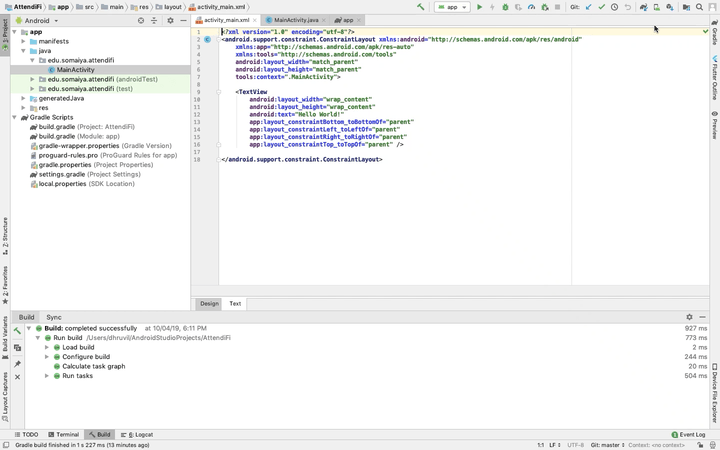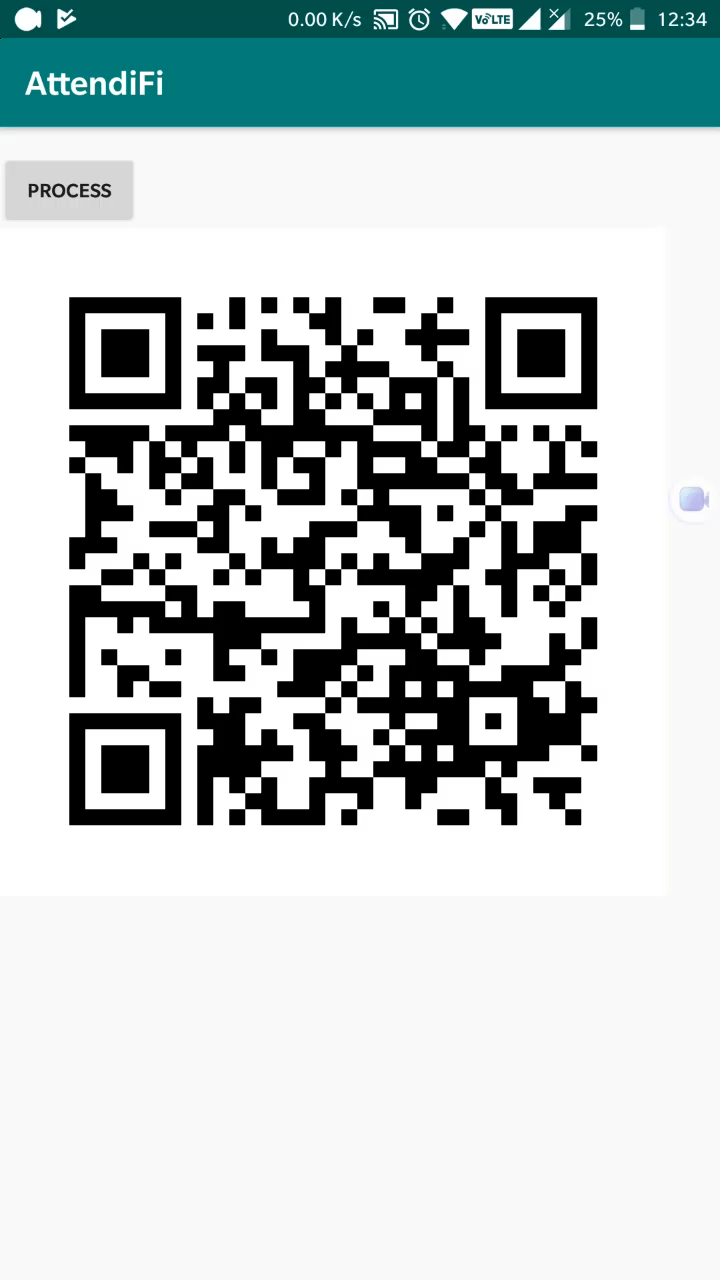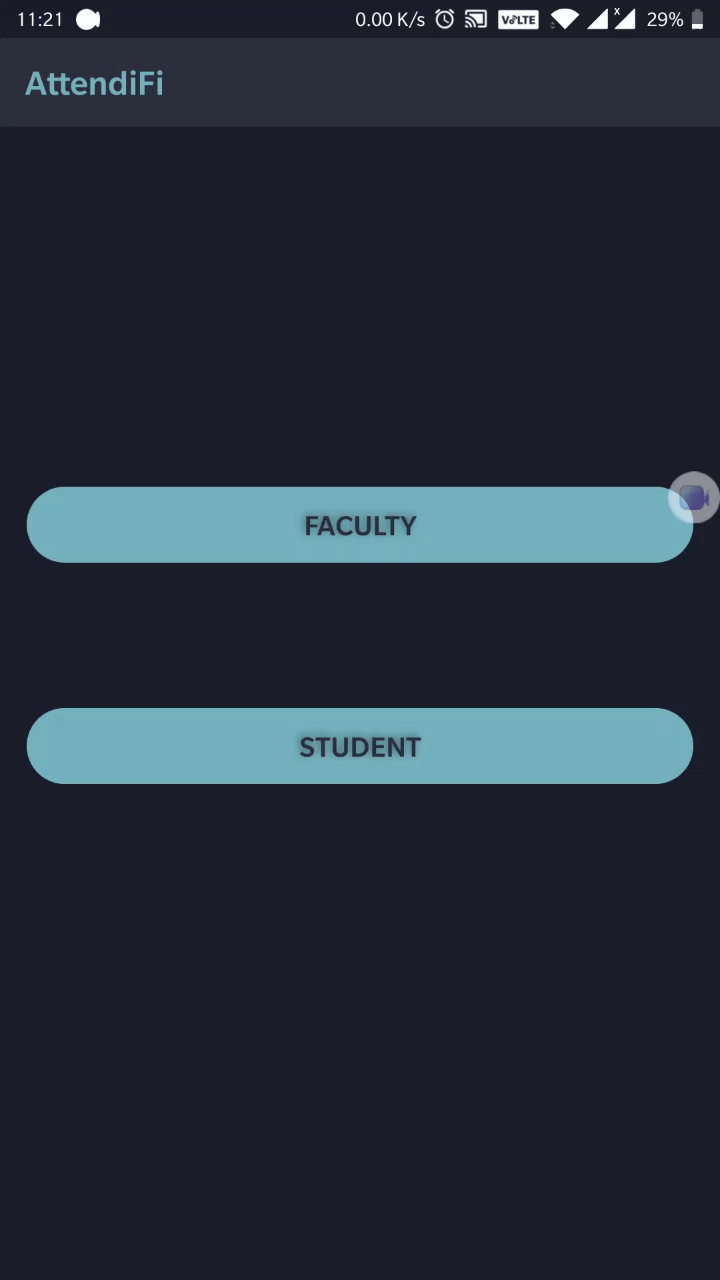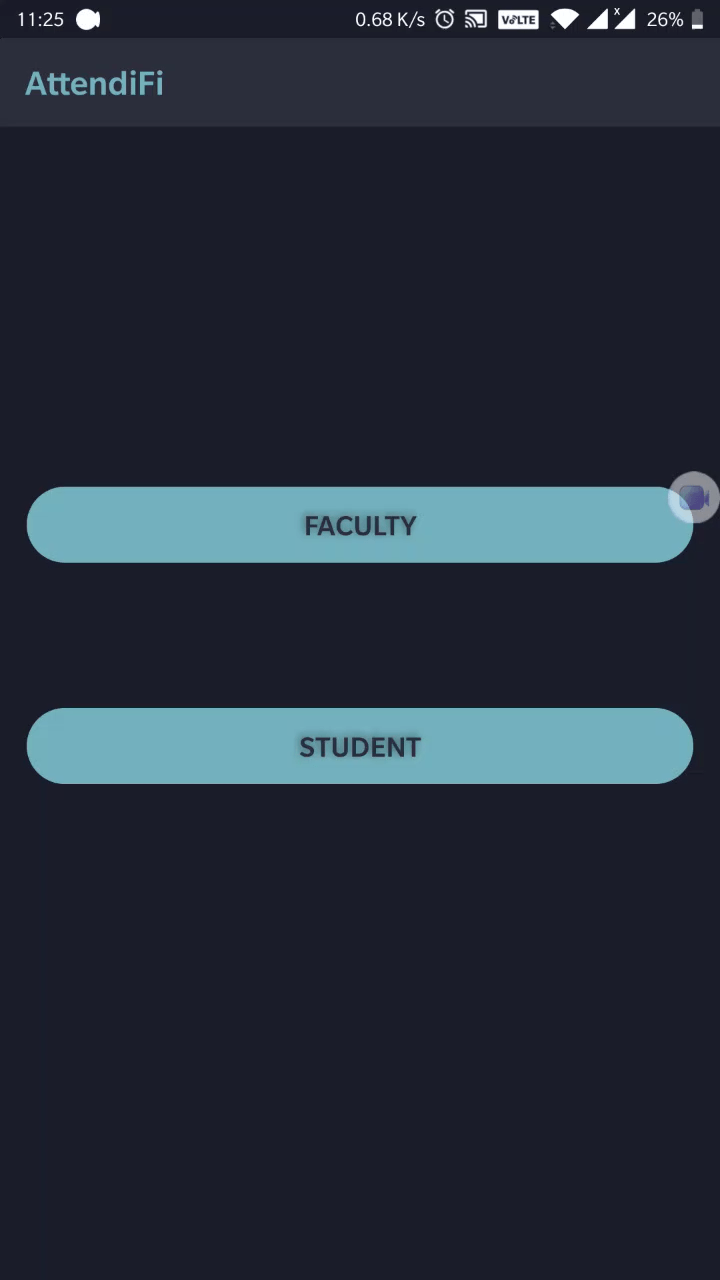It is an application that helps a faculty take attendance in the classroom. The only constraint is that faculty and students have to be on the same network. We are open to issues.
-
Change the build.gradle(Module : app) file with the following code:
... android { ... compileSdkVersion 26 defaultConfig { ... minSdkVersion 15 targetSdkVersion 26 multiDexEnabled true ... } ... } ... dependencies { ... implementation fileTree(dir: 'libs', include: ['*.jar']) implementation 'com.android.support:appcompat-v7:26.1.0' implementation 'com.google.android.gms:play-services:12.0.1' implementation 'com.android.support:multidex:1.0.3' ... } ...
-
Scanning done!!
Please refer to the the commit with the same message to view the changes
-
Modify build.gradle again to use Zxing library
dependencies{ ... implementation 'com.google.zxing:core:3.2.1' implementation 'com.journeyapps:zxing-android-embedded:3.2.0@aar' ... }
-
QR Code Generation done!!
Please refer to the commit with the same message to view the changes
-
Get the IP Address of the device:
public String getLocalIpAddress(){ try { for (Enumeration<NetworkInterface> en = NetworkInterface.getNetworkInterfaces(); en.hasMoreElements();) { NetworkInterface intf = en.nextElement(); for (Enumeration<InetAddress> enumIpAddr = intf.getInetAddresses(); enumIpAddr.hasMoreElements();) { InetAddress inetAddress = enumIpAddr.nextElement(); if (!inetAddress.isLoopbackAddress() && inetAddress instanceof Inet4Address) { return inetAddress.getHostAddress(); } } } } catch (Exception ex) { Log.i("IP Address", ex.toString()); } return null; };
-
Encode the IP Address around random text and mark it with hash for easy decomposition
... String all = "abcdefghijklmnopqrstuvwxyzABCDEFGHIJKLMONPQRSTUVWXYZ0123456789`~!@$%^&*(){}[]:';\",./<>?"; public String random(int len){ String res = ""; for(int i = 0;i < len;i++){ res += all.charAt( (int) (Math.random()*all.length()) ); } return res; }; ... onCreate(){ ... ip = "#"; StringTokenizer ipformatted = new StringTokenizer(getLocalIpAddress(),"."); ip+=ipformatted.nextToken()+"A"+ipformatted.nextToken()+"B"+ipformatted.nextToken()+"C"+ipformatted.nextToken()+"D"; ip+="#"; String text = random(64) + ip + random(64 - ip.length()); ... } ...
But do not forget to modify the AndroidManifest.xml for permissions:
<uses-permission android:name="android.permission.INTERNET" /> <uses-permission android:name="android.permission.ACCESS_NETWORK_STATE" />



